May 30, 2025 | 12:55 GMT +7
May 30, 2025 | 12:55 GMT +7
Hotline: 0913.378.918
May 30, 2025 | 12:55 GMT +7
Hotline: 0913.378.918
Humane chicken eggs or eggs produced with humane breeding methods are proven to be richer in nutrients than eggs produced with conventional methods.
Recently, HealthyFarm Ltd Company in the central city of Da Nang, a pioneer in the field of humane farming in Vietnam, has introduced cage-free eggs called "Happy eggs".
This is considered the first step to raise the standards of quality food as well as promote responsible husbandry and consumption in Vietnam.
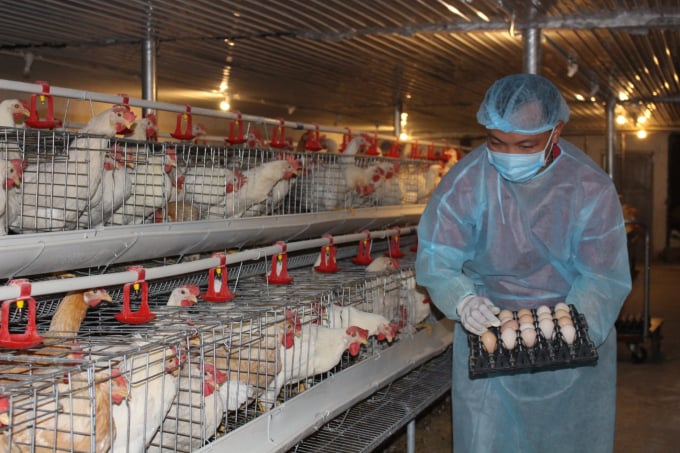
Những trang trại chăn nuôi công nghiệp quy mô lớn đã biến gia cầm thành những "cỗ máy đẻ" trứng. Ảnh: NNVN.
Animal welfare is defined as the physical and mental well-being as well as the healthy expression of an animal's natural behaviour. Since 1979, the Animal Welfare Council in the UK has proposed the "5 fundamental freedoms of animals" including No hunger; no discomfort; no pain, injury and disease; unrestricted natural behaviour and; free from fear and suffering.
In Vietnam, the Livestock Law 32/2018/QH14 with regulations on humane treatment of livestock, officially took effect on January 1, 2020. However, in reality, Vietnam still ranks very low in animal protection practices based on the World Animal Welfare Association's indicators released in 2020.
For chicken production, while the European Commission advocates that by 2027, all animal captivity will be banned, caged chicken farming is still considered a traditional method of raising eggs for commercial egg production in Vietnam.
On a traditional industrial farm, thousands of hens are kept in iron cages. This limits their movement, wingspan, or other natural behaviours such as dusting, foraging, perching on poles or laying eggs in private, leaving hens more likely to experience physical and mental health problems, which results in fewer eggs being laid.
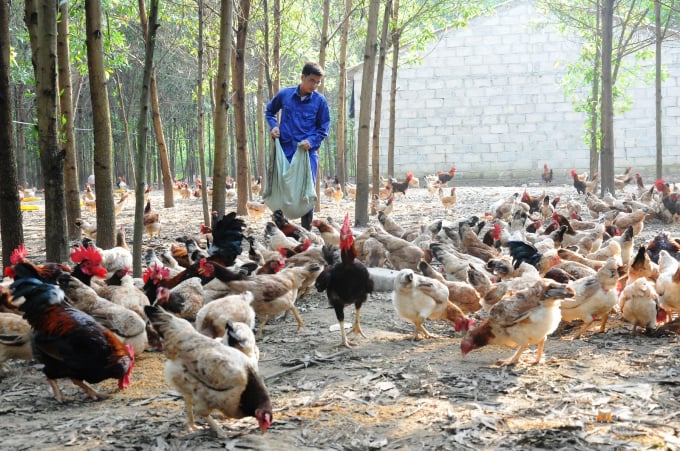
Animal welfare is defined as the physical and mental well-being as well as the healthy expression of an animal's natural behaviour.
Therefore, it is essential to create systemic change from the government level to farmers, distributors and consumers. In Vietnam, HealthyFarm's partner farm is one of the first cage-free egg-laying hen farms to receive the "Certified Humane" certificate granted by Humane Farm Animal Care.
Applying a humane breeding model, HealthyFarm's partner farms meet basic criteria such as building a living environment that ensures the hen's natural behaviours, namely raising free-range chickens, providing humane treatment, food and water sources for livestock.
In the free-range method, besides the environment inside the coop, the chickens also have an outdoor space for feeding and sunbathing. For the non-cage method, hens have free space to move around in the house, equipped with perches, nests and materials for dust baths to practice the chicken's natural behaviours.
Farmers need to take adequate precautions to reduce the risk of disease as well as monitor chicken health continuously and closely.
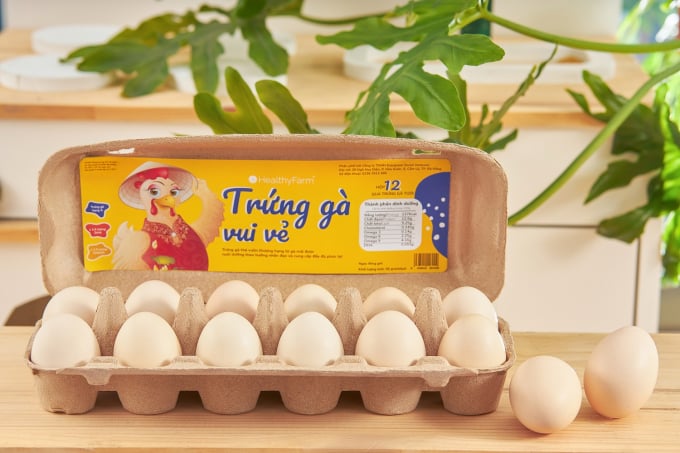
HealthyFarm ha slaunched "Happy Eggs" - eggs that are produced in humane way. Photo: The Courtesy of the company.
Therefore, chickens raised in a humane way grow up healthier and produce more nutritious eggs, especially free-range chicken eggs. Furthermore, growth promoters, antibiotics and animal by-products are not used as chicken feed.
HealthyFarm partner farms use fish to feed chicken instead, which enhances the nutritional value of eggs because it contains less cholesterol, more omega and DHA. Compared with eggs produced with the conventional method, HealthyFarm eggs with humane breeding methods not only ensure the welfare of animals but also meet the demand for high-quality chicken eggs, thereby promoting sustainable production and consumption.
To shift to a humane husbandry model, farmers need careful and close guidance from experts who are knowledgeable about animal welfare. Breeders need to understand the design standards of the barn, equipment and supplies, know how to choose breeds and feed, as well as humanely raise and manage methods.
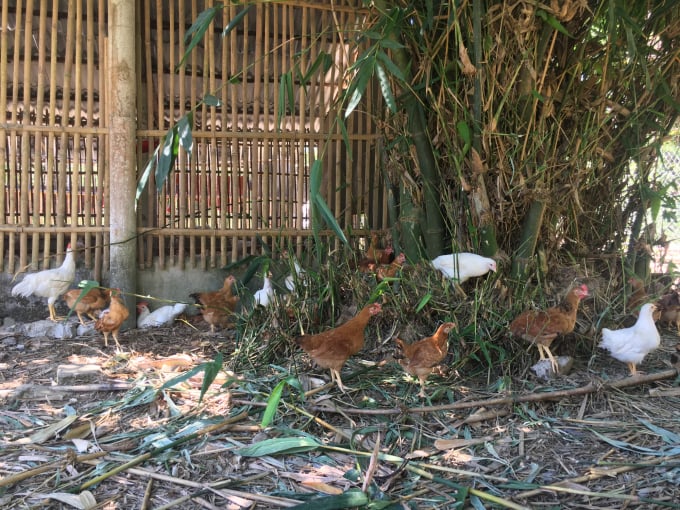
Chickens are raised on a farm that is a partner of HealthyFarm. Photo The Courtesy of the company
Vo Huu Hai, technical consultant for HealthyFarm said that in the past, he thought that raising chickens humanely meant giving chickens a comfortable life, laying eggs naturally without forcing them.
“However, when approaching this issue, I recognised that it is not as simple as that,” he said.
For example, chickens must be vaccinated, and be given medicine when sick. Like humans, chickens also need to be taken care of and have rights that shouldn't be violated, he said.
Changing breeding habits and mindsets can be challenging, but that doesn't lessen the need for this change, he said.
“Currently, farmers not only need to meet VietGAP or GlobalGAP's product quality standards but also need to meet animal welfare standards. To do so, farmers need time to get used to and improve the breeding environment,” he said.
In addition, raising awareness of consumers to access humane livestock products is extremely necessary to ensure product output for farmers. As one of the pioneers in the humane livestock movement in Vietnam, HealthyFarm needs to continuously improve its approach to livestock partners, improve husbandry methods, product quality as well as product output.
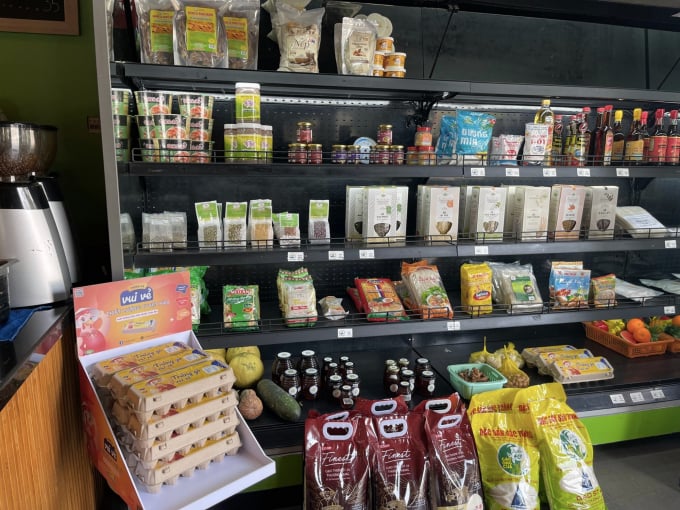
"Happy Eggs" of HealthyFarm are sold in a market in HCM City. Photo Courtesy of the company.
Faced with those requirements, plus the challenges posed by the Covid-19 epidemic, HealthyFarm's eggs still meet national and international standards on animal husbandry, production and food hygiene and safety, especially Cage-free eggs got “Certified Humane” and free-range chicken eggs are in the process of being tested.
Currently, HealthyFarm's partner farms are present in the central and southern regions. The product “Happy Eggs” – a pack of 12 eggs packed in an eco-friendly paper box has just been launched and has also been distributed in Ho Chi Minh City and Da Nang.
Along with new steps on the journey to protect animal welfare in Vietnam, HealthyFarm wishes to introduce and further promote humane farming methods or humane eggs, aiming for quality products, sustainable production-consumption and especially a more compassionate society.
Translated by Hien Anh

(VAN) FAO’s Director-General addresses the 5th Baghdad International Water Conference.
/2025/05/26/1716-4-nongnghiep-191706.jpg)
(VAN) Chain linkages, technological innovation, and raw material zoning are three strategic pillars for the coconut industry to strongly develop and elevate its position on the global agricultural map.
![Advanced mariculture – an inevitable trend: [4] Accompanied by scientists](https://t.ex-cdn.com/nongnghiepmoitruong.vn/608w/files/sohk/2025/05/13/1941-pgsts-vo-van-nha-140958_717.jpg)
(VAN) According to Assoc. Prof. Dr. Vo Van Nha, Director of the RIA III, the development of advanced offshore mariculture is no longer an option but an essential path for Vietnam’s fisheries sector.

(VAN) Vietnam is intensifying the development of mollusk farming areas that meet international standards, aiming for sustainable growth and enhancing its export position in the global seafood market.
![Advanced mariculture – an inevitable trend: [3] Policy-driven momentum](https://t.ex-cdn.com/nongnghiepmoitruong.vn/608w/files/doanhtq/2025/05/21/0104-0616-0348-nuoi-bien-170339_789.jpg)
(VAN) To ensure the success of offshore mariculture that uses advanced technologies, it is essential to establish supportive policies that inspire both individuals and enterprises to invest with confidence.
![Advanced mariculture – an inevitable trend: [2] Outstanding results](https://t.ex-cdn.com/nongnghiepmoitruong.vn/608w/files/sohk/2025/05/12/4632-4136-nuoi-bien-11-164117_819.jpg)
(VAN) Pilot models of high-tech offshore mariculture in Vietnam, particularly in the South Central Coast region, have demonstrated exceptional economic returns and sustainability, setting a new direction for the country’s aquaculture industry.
![Advanced mariculture – an inevitable trend: [1] Moving offshore](https://t.ex-cdn.com/nongnghiepmoitruong.vn/608w/files/phucpm/2025/05/18/0252-2436-nuoi-bien-6-162148_783.jpg)
(VAN) Mariculture using advanced technology and moving offshore is an inevitable trend, as nearshore areas increasingly reveal limitations.